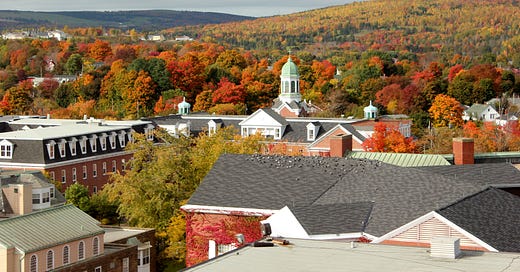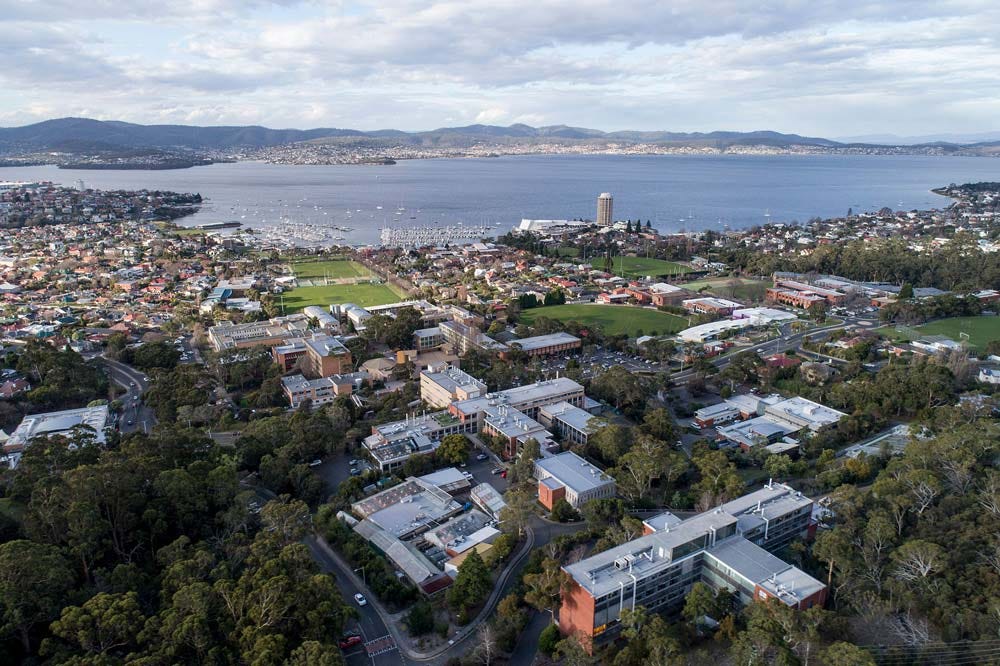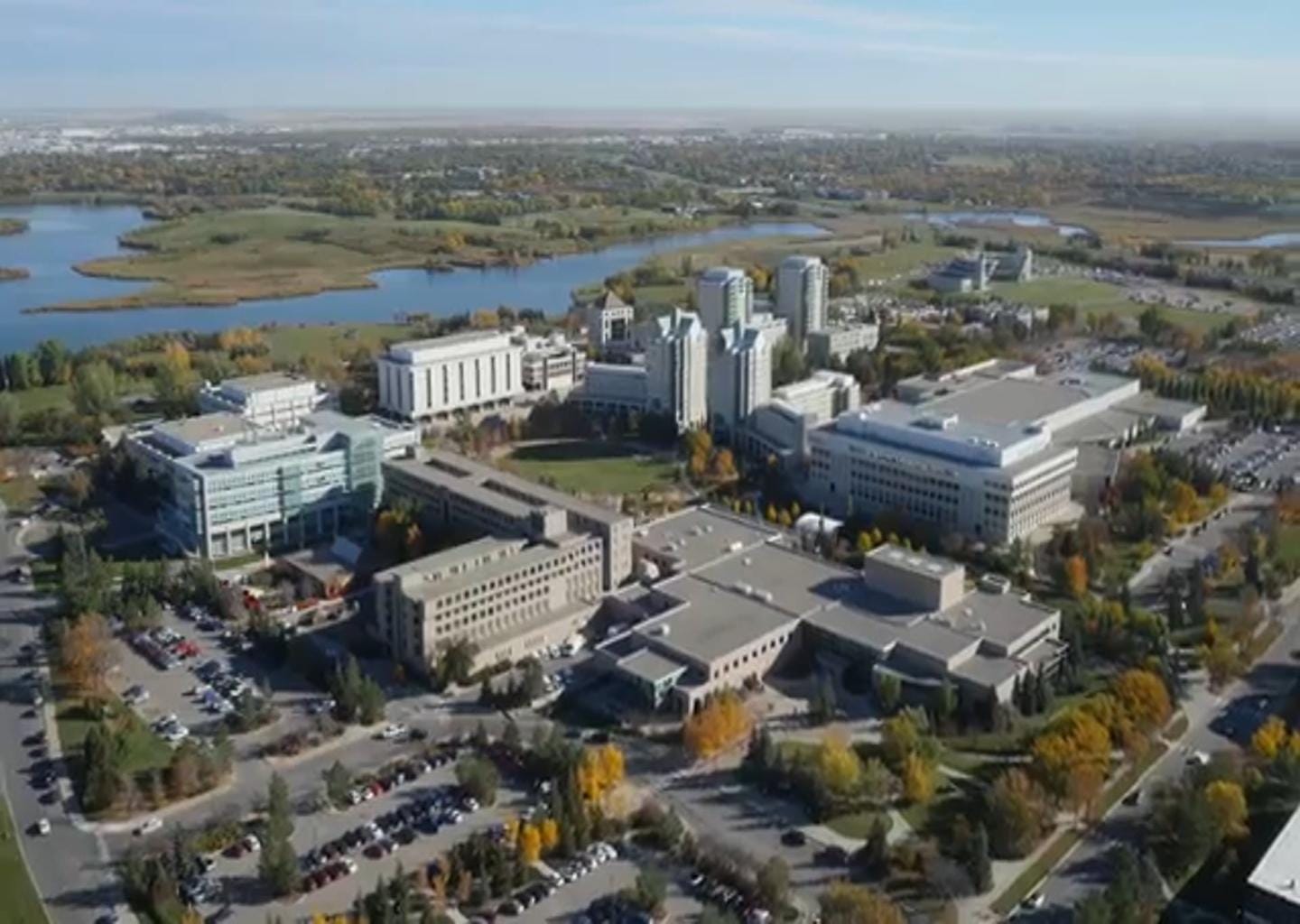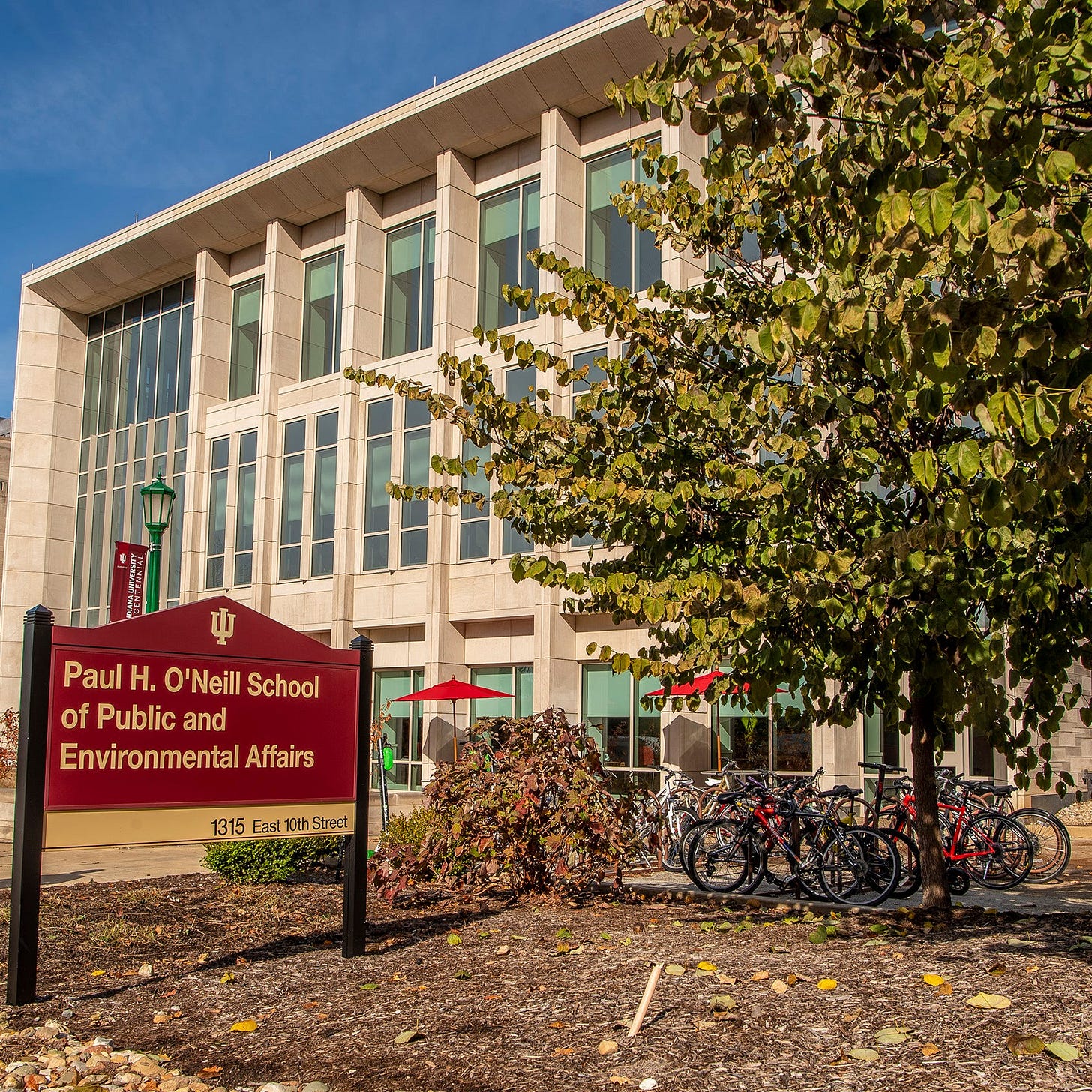The title of this post is a cheat: nobody calls it “Xavier”. St. Francis Xavier University, of Antigonish, Nova Scotia is called “Saint-eff-EX”, no U, with the t nearly silent. It was my first full-time teaching job, in 1982. I was twenty-three. I had my Masters degree, but was not doing well at all at the start of a doctoral program. The chair of the Econ Dept. at St.FX called the grad school I was in, and said they needed someone for two years who could cover for a few faculty going on sabbatical. And in one of those decisions that you don’t know until much later are life changing, I said “Sure.” I had never been east of Quebec City, so this would be something new.1
It was a public, liberal arts college - Canada, not having a disestablishment clause in its constitution, can have public colleges that are Catholic in character, so long as everyone is treated fairly (and we were) - with just shy of two thousand students, mostly from Atlantic Canada (especially Cape Breton Island, which is not a very wealthy place), though some students from Ottawa and Montreal, some from Maine and Massachusetts. It had a big interest in international development, with representation amongst the priests and nuns on faculty from liberation theology. Antigonish was very small, at the time a population of maybe six thousand. I loved it.
Academics today have students who have grown up in the smart phone / selfie / social media era (my next post will get into that), and would point to those inventions as the great shift in what the college experience is like. But I’m going to look at it from a different angle here, which I recognize might not draw agreement.
My office at St.FX had a telephone and a typewriter and a bookshelf. There was no desktop computer, no World Wide Web. There was a computer at the university, but it was in another building; I can’t remember ever actually going there. There was no email - every day you would go by the student building to check your mailbox (somehow I landed with Box #2, out of a few thousand). I got a few journals in hard copy, and friends would write letters. I would go to the library to have a look at newspapers, and recent economics journals I couldn’t afford to subscribe to. There weren’t that many - this was before the explosion in the number of academic journals. There was a tea room in my building where faculty would stop by in the mornings for a few minutes to have a drink and a cookie and say hello. There was a lecture series by faculty who would speak to a general audience from across the college about what they were working on. There was a good foreign film program on campus as well. I wasn’t expected to do research, just being a visitor, so I spent my time studying the things I should know before returning for another try at a doctorate (it worked). We spent a lot of time in each other’s offices. I had one friend who loved talking about the big issues in economics, and these were great discussions. Faculty and students all ate together in the same big cafeteria (though The Wheel was more just for students - I checked and it’s still open…), and would go to the same pubs.2
I retired from teaching in 2024. What was different about academic life after forty-two years? Yes, students (and not just students) attached to their smart phones, and now AI, certainly makes a big difference. And there is always blame to attach to university administrators, typically cast as neoliberal bureaucrats, the lot of them. And now we have the Trump administration (and, it should be said, state governments as well, operating a little further under the radar) with their promised upheavals. I’m not going to get into the enormous damage being done by the current administration here - it’s being well-covered elsewhere. So as you read this piece, do not think I fail to see the immediate issues facing higher education. This is a long-view post.
My personal view is that what really changed the life of the campus was the combination of the desktop computer and the internet. What were welcomed as innovations that would have great benefits - and of course there are benefits - have also led to the atomization of the campus, and that is a great loss.
(My second teaching position, at the University of Tasmania, 1987 - 1989)
These innovations changed the focus of the professor. The desktop is where your mail comes (no more Box #2), and in fantastically high volumes. It is where your colleagues now reside. It is your library. It is all of your teaching materials. It is your main communication with students. It dominates the desk - by the time I left teaching nobody had just one computer screen, unless it was one of those IMAX types of screen.
It increased the speed at which research papers could be produced, and the possibility became the expectation for tenure and promotion, even in universities that are not what we would think of as research-intensive. This led to a great rise in the number of journals, and for ones that already existed, an increase in how many articles they published. And this means faculty are busy: you are expected to publish a lot of papers, much more than when I began as an academic, and if you have one good idea that can be sliced into three tranches, do it - tenure is going to demand it. Don’t swing for the fences; see if you can draw a walk.
(University of Regina, 1989 - 2002)
No more discussing that article in the latest issue of Canadian Public Policy in your colleague’s office - there’s simply no time, and they don’t read what you read anyway. No time to hang out in the tea room - I lol (sort of) when I see some right-wing commentator talk about what they are saying in “the faculty lounge.” There is no faculty lounge. And students don’t want to bother you: if they actually pluck up the courage to come to your office, when they arrive they see you looking at one of your three screens and typing something, and you are obviously busy. I was nervous interrupting a colleague when I saw them engaged on their computer. Although, for the most part, along the corridors of faculty offices the majority of doors are shut (for privacy, if faculty are there, and also because the inexpensive desktop or laptop computer plus internet made getting a lot of work done from home a viable option).
I do not think it is just nostalgia to say it was better before. All things considered, I think it was, not just in terms of the quality of the academic lifestyle, but in terms of what these institutions are supposed to be about. I’m basing this not on comparing a very small liberal arts college more than forty years ago to an R1 US campus now - these are gradual changes I’ve seen as I’ve moved through different schools over the years (St.FX was the only true liberal arts college in my career).
(Georgia State University, 2002 - 2006)
As Oakeshott emphasized, the essence of a university is bringing together scholars and students. We don’t need universities for research; it can be carried out in laboratories and institutes detached from universities and students. And we don’t need research scholars for teaching: our high schools are staffed by people who just focus on teaching, and many, in some places now most, undergraduate courses are taught either by adjuncts or full-time lecturers with no research responsibilities (and many of them do a fantastic job of it). But a university can do something else: bring researching scholars and students together. And so when there are forces that serve to create something of a separation between scholar and student, we lose something.
A book about college teaching published just a few years after I left St.FX said:
The teacher, particularly the teacher devoted to liberal education, must constantly try to look toward the goal of human completeness and back at the natures of his students here and now, ever seeking to understand the former and to assess the capacities of the latter to approach it. Attention to the young, knowing what their hungers are and what they can digest, is the essence of the craft.
My career was quite imperfect in this respect, I have no illusions about that. But Bloom was right, and it requires a lot of time and conversation and observation, especially as the lecturer gets older, to keep track of the changes in who our students are. And so when I worry about technology (and I’m not focused on student technology here, but faculty), though it is no one’s intent to have this, creating isolation on the campus, it is because I think there is a high price to these changes.
(Indiana University, 2006 - 2024)
I have known many prolific scholars, who write important papers faster than I can even type, who are also deeply committed to their students and their teaching. I would never say professors don’t care about students any more - of course there are a few like that, there always have been, but they are a minority. I am talking about the environment that characterizes the modern North American university, even when everyone in it has the best motives. Technology has brought a division that requires conscious effort to even partly overcome.
We have lost, I think, many of the out-of-the-classroom conversations that make for a full experience. It might be that student “learning outcomes” (a term and a philosophy I really do not like) have improved, although through my own teaching I am not sure at all that this has been the case.3 But again, that is restricting everything to the classroom when all other interaction has disappeared. The atomized campus.
My sense on retiring last year was that something had been lost since I started at this, and as much as I tried to correct for my biases, that back then I was younger and fitter and naive about a lot of things, I can’t shake it off.
“There is no simple explanation for anything important any of us do, and the human tragedy, or the human irony, consists in the necessity of living with the consequences of actions performed under the pressure of compulsions so obscure we do not and cannot understand them.” Hugh MacLennan, The Watch that Ends the Night.
Kevin, correct me if I’ve got this wrong…
I’ve taught economics students the benefits of free trade, and arts administration students the folly of “economic impact” studies, for decades, and what have I got to show for it?










You paint a compelling portrait of pre-internet academic life. I'd be curious to know how other academics react to that. I remember Brad DeLong's article (almost 20 years ago!) defending the value of blogging and online interactions as part of the intellectual community, but I don't know if he would have additional caveats now: https://delong.typepad.com/sdj/2006/07/the_invisible_c.html